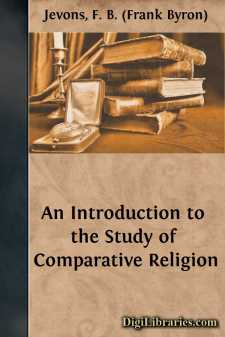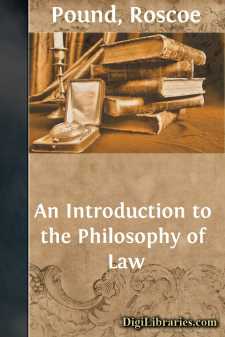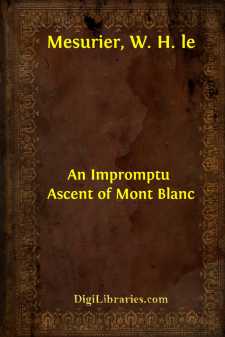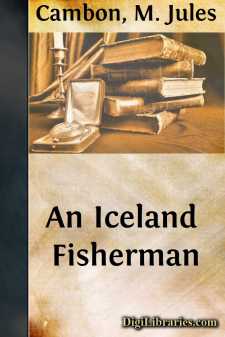Fiction
- Action & Adventure 180
- Biographical 15
- Christian 59
- Classics 6965
- Coming of Age 5
- Contemporary Women 3
- Erotica 8
- Espionage/Intrigue 12
- Fairy Tales, Folklore & Mythology 236
- Family Life 169
- Fantasy 117
- Gay 1
- General 596
- Ghost 32
- Historical 808
- Horror 43
- Humorous 160
- Jewish 25
- Legal 4
- Medical 22
- Mystery & Detective 315
- Political 49
- Psychological 41
- Religious 64
- Romance 159
- Sagas 11
- Science Fiction 730
- Sea Stories 113
- Short Stories (single author) 537
- Sports 10
- Suspense 1
- Technological 8
- Thrillers 2
- Urban Life 31
- Visionary & Metaphysical 1
- War & Military 173
- Westerns 199
Fiction Books
Sort by:
INTRODUCTION The use of any science lies in its application to practical purposes. For Christianity, the use of the science of religion consists in applying it to show that Christianity is the highest manifestation of the religious spirit. To make this use of the science of religion, we must fully and frankly accept the facts it furnishes, and must recognise that others are at liberty to use them for...
more...
by:
Roscoe Pound
The Function of Legal Philosophy For twenty-four hundred years—from the Greek thinkers of the fifth century B. C., who asked whether right was right by nature or only by enactment and convention, to the social philosophers of today, who seek the ends, the ethical basis and the enduring principles of social control—the philosophy of law has taken a leading rôle in all study of human institutions....
more...
by:
W. H. Durham
CHAPTER I AN OUTLINE OF SHAKESPEARE'S LIFE Our Knowledge of Shakespeare.—No one in Shakespeare's day seems to have been interested in learning about the private lives of the dramatists. The profession of play writing had scarcely begun to be distinguished from that of play acting, and the times were not wholly gone by when all actors had been classed in public estimation as vagabonds. While...
more...
by:
Henry James
PART I Four years ago—in 1874—two young Englishmen had occasion to go to the United States. They crossed the ocean at midsummer, and, arriving in New York on the first day of August, were much struck with the fervid temperature of that city. Disembarking upon the wharf, they climbed into one of those huge high-hung coaches which convey passengers to the hotels, and with a great deal of bouncing and...
more...
by:
James H. Schmitz
He was already a thief, prepared to steal again. He didn't know that he himself was only booty! Phil Garfield was thirty miles south of the little town of Redmon on Route Twelve when he was startled by a series of sharp, clanking noises. They came from under the Packard's hood. The car immediately began to lose speed. Garfield jammed down the accelerator, had a sense of sick helplessness at...
more...
On a delightful evening in the month of July, 1881, table d'hôte being over, my friend S—— and myself were seated under the verandah of the hotel d'Angleterre at Chamonix; there were many others besides ourselves, chiefly English and Americans, grouped in parties, some taking their coffee, others smoking, and all devoting their attention to the summit of Mont Blanc whose diadem of snow...
more...
In the matter of raising canary-birds—at once strong of body and of note, tamed to associate with humanity on rarely friendly terms, and taught to sing with a sweetness nothing short of heavenly—Andreas Stoffel was second to none. And this was not by any means surprising, for he had been born (and for its saintly patron had been christened) close by the small old town of Andreasberg: which stands...
more...
by:
M. Jules Cambon
PIERRE LOTI The first appearance of Pierre Loti's works, twenty years ago, caused a sensation throughout those circles wherein the creations of intellect and imagination are felt, studied, and discussed. The author was one who, with a power which no one had wielded before him, carried off his readers into exotic lands, and whose art, in appearance most simple, proved a genuine enchantment for the...
more...
by:
Daniel Defoe
It deserves some notice, that just at, or soon after writing these sheets, we have an old dispute warmly revived among us, upon the question of our trade being declined, or not declined. I have nothing to do with the parties, nor with the reason of their strife upon that subject; I think they are wrong on both sides, and yet it is hardly worth while to set them to rights, their quarrel being quite of...
more...
by:
Josiah Tucker
My Lords and Gentlemen, hough the Author of the ensuing Tract may be below your Notice, as an Individual, yet the Subject he treats upon, highly deserves your most serious Attention. In the present unhappy Disputes between the Parent-State and the Colonies, he undertakes to point out, what Measures the Landed-Interest of Great-Britain and Ireland ought to pursue in future, for the Sake of themselves...
more...











